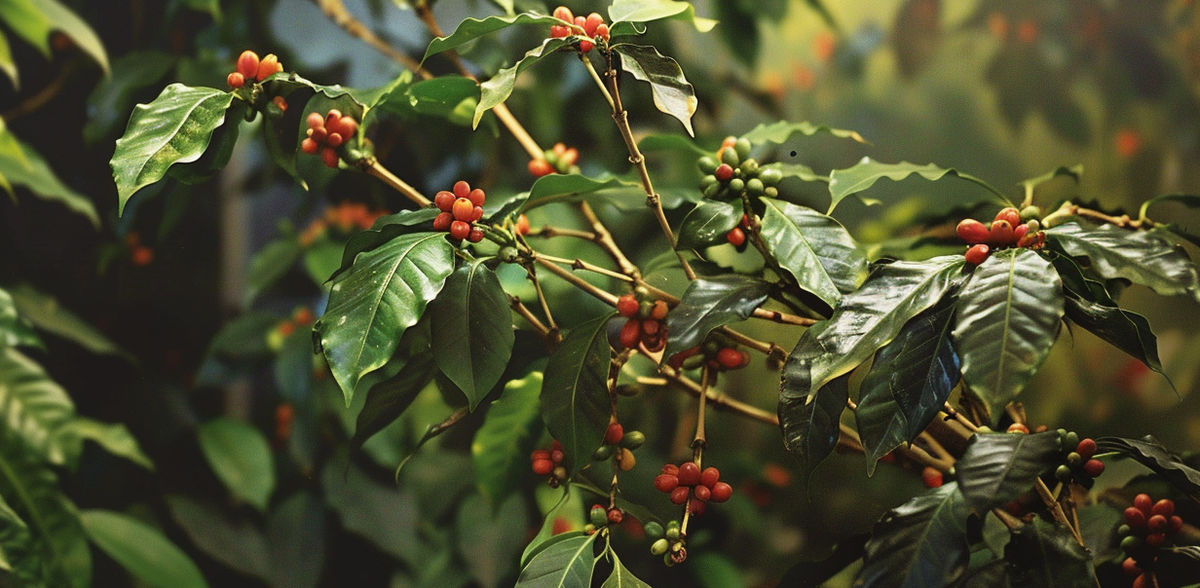Nestlé strengthens coffee supply with new Arabica variety
While global coffee demand continues to rise, recent climate change modelling suggests that land suitable to grow Arabica coffee might be reduced by over 50% by 2050.1 To mitigate the impact of these changes on the coffee supply chain and to ensure that sustainably grown coffee is available to future generations, Nestlé is harnessing its agricultural sciences capabilities.

Nestlé aims to strengthen coffee supply chain with new high-yielding Arabica variety
Nestlé
Using traditional breeding methods, Nestlé plant scientists and agronomists have developed Star 4, a novel high-yielding Arabica coffee variety. Selected in Brazil for its resilience, the new variety also possesses the characteristic taste of Brazilian coffee.
"We are proud to make another important step towards resilient coffee supply chains, ensuring that consumers can continue to enjoy great coffee in the future. The new variety is characterized by its larger bean size and coffee leaf rust resistance. Our field trials have demonstrated that, using similar inputs, the yields of Star 4 are substantially higher than the two most used Brazilian local varieties, which reduces its carbon footprint," says Jeroen Dijkman, Head of Nestlé’s Institute of Agricultural Sciences.
Reduced GHG emissions from higher coffee yields are attributed to improved plant productivity as well as farming methods. Marcelo Burity, Nestlé’s Head of Green Coffee Development, says: "Optimizing cultivation practices remains vital as they are the primary factor contributing to the environmental impact of a cup of coffee." The largest share of GHG emissions in the process of obtaining ground coffee originates from its cultivation.2
The development of locally relevant solutions such as Star 4 also contributes to Nestlé’s Agriculture Framework (pdf, 18Mb) promoting sustainable farming practices and responsible sourcing. The first plants were tested in São Paulo and Minas Gerais, two traditional coffee regions in Brazil. Moreover, in partnership with the Brazilian foundation Procafé, Nestlé was successful in registering the novel Arabica variety in Brazil.
Beyond the development of Star 4, Nestlé previously developed two Robusta varieties Roubi 1 and 2 which are being rolled out in Mexico.
1 Pörtner, H.-O., Roberts, D., Tignor, M., Poloczanska, E., Mintenbeck, K., Alegría, A., Craig, M., Langsdorf, S., Löschke, S., Möller, V. IPCC. Climate Change 2022: Impacts, Adaptation and Vulnerability. Contribution of Working Group II to the Sixth Assessment Report of the Intergovernmental Panel on Climate Change; Eds.; Cambridge University Press: New York, NY, USA, 2022; p. 3056. [CrossRef]
2 Karwacka M, Ciurzyńska A, Lenart A, Janowicz M. Sustainable Development in the Agri-Food Sector in Terms of the Carbon Footprint: A Review. Sustainability. 2020; 12(16):6463.
Most read news
Topics
Organizations
Other news from the department business & finance

Get the food & beverage industry in your inbox
By submitting this form you agree that LUMITOS AG will send you the newsletter(s) selected above by email. Your data will not be passed on to third parties. Your data will be stored and processed in accordance with our data protection regulations. LUMITOS may contact you by email for the purpose of advertising or market and opinion surveys. You can revoke your consent at any time without giving reasons to LUMITOS AG, Ernst-Augustin-Str. 2, 12489 Berlin, Germany or by e-mail at revoke@lumitos.com with effect for the future. In addition, each email contains a link to unsubscribe from the corresponding newsletter.




























































